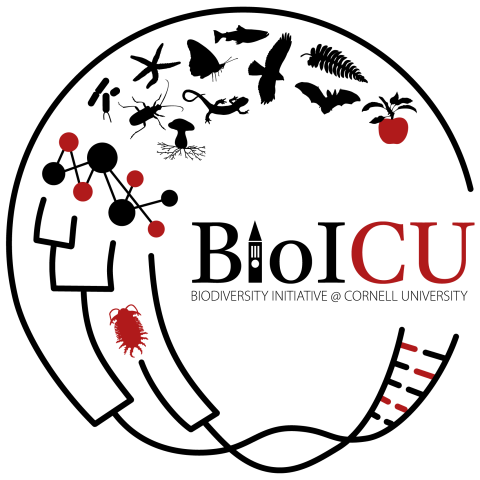
Healthy ecosystems and human populations rely on a diverse and integrated community of species. However, Earth’s ecosystems are increasingly threatened by human-mediated effects (e.g., climate change, habitat degradation and loss, invasive species) that have devastating impacts on species distribution and abundance, leading to local extinctions and a global biodiversity crisis. The global biodiversity crisis is by far the greatest grand challenge to sustaining life on earth, impacting all ecosystems and threatening human health and wellbeing. Pollinators that support our agriculture, mycrorhyzal fungi nurturing trees, and bivalves that improve water quality as they feed are just a few examples of ecosystem services that are powered by biodiverse communities. As biodiversity loss continues at a pace that threatens ecosystems here in New York and across the planet, we in CALS have the potential to alleviate and mitigate this crisis through research that builds an understanding of resilience and extinction.
As its core, this moonshot has the goal of curbing biodiversity loss through translational research that leverages Cornell’s Natural History Collections and Natural Area Reserves to build world class field-based research and teaching programs that directly address the biodiversity crisis from local to global scales. Underlying and fundamental to this moonshot are the students, curators and research teams that integrate specimens into cutting-edge research, addressing patterns and processes of biodiversity loss and resilience, effective science communication and engaged outreach on the role of science-based solutions for mitigating the biodiversity crisis, and inclusive teaching practices supporting students in solution-driven science, critical thinking, modeling and visualization of big data, biodiversity and museum science, and collections-based research. Records associated with the >10 million specimens of the combined Cornell University Natural History Collections constitute a key knowledge base for integrating historical species ranges, life history traits, and interspecies interactions in models that detect ecosystem-level impacts of global climate change. The genetic material in these samples is already used in powerful, predictive models that tie genetic and phenotypic diversity to habitat heterogeneity and predict species-level decline while providing science-based solutions for mitigating extinction risk. Cornell’s Natural Area Reserves serve as refugia for extant biodiversity while resourcing experimental studies to measure and understand the physiological and environmental limits that govern species and ecosystem health.
A recent Cornell-based study demonstrates that engaged field experiences positively impact career trajectories for graduate students in factors that include successful leadership, collaboration, and retention of students from diverse backgrounds in academia.1 By leveraging Cornell’s (i) biodiversity collections and living landscapes and (ii) existing biodiversity and computational expertise, the skills and scholarship amplified by this initiative will enable Cornell researchers to predict community-level outcomes under an array of climate scenarios and apply this knowledge to reduce and mitigate biodiversity loss at individual, population, and ecosystem scales – locally and globally empowering biodiversity for people and planet.
